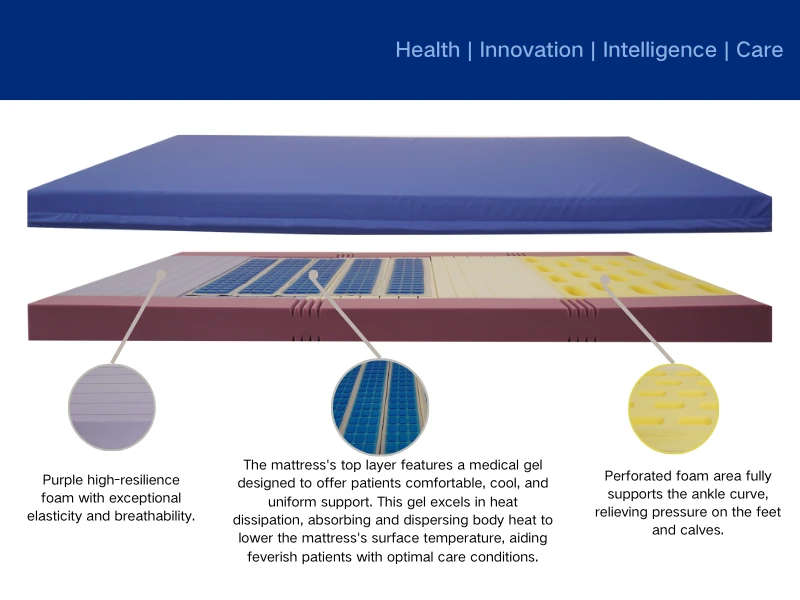Understanding CE Certification for Medical Care Products and Devices in Healthcare Industry
CE Certification in Medical Care Ensuring Safety and Efficacy in Healthcare Products
In the ever-evolving field of medical care, the safety and efficacy of medical products are paramount. CE Certification, a European standard that signifies compliance with health, safety, and environmental protection standards, plays a crucial role in ensuring that medical devices and equipment are safe for use. This certification is essential for manufacturers seeking to market their products in the European Economic Area (EEA), which includes all EU member states as well as Iceland, Liechtenstein, and Norway.
Understanding CE Certification
CE stands for Conformité Européenne, which in French translates to European Conformity. The CE marking indicates that a product meets the necessary requirements set out in EU directives. For medical devices, this can include the Medical Devices Regulation (MDR) and the In Vitro Diagnostic Medical Devices Regulation (IVDR). These regulations were established to guarantee that products are not only safe for patients but also perform as intended.
Before a medical device can bear the CE mark, manufacturers must conduct a comprehensive assessment of the product’s design, materials, and intended use. This often involves rigorous testing and clinical evaluations to demonstrate safety and performance. The level of scrutiny depends on the classification of the device—ranging from Class I (low risk) to Class III (high risk). Manufacturers may need to involve a Notified Body, an organization designated by a member state to assess the conformity of the products before they can be CE marked.
The Importance of CE Certification
1. Patient Safety One of the primary objectives of CE certification is to protect patients. By ensuring that medical devices meet standardized safety and efficacy requirements, the risk of adverse effects caused by faulty products is significantly minimized.
2. Market Access CE certification is mandatory for medical devices sold in the EEA. Without it, manufacturers cannot legally market their products in these regions. This makes CE marking a critical step for businesses aiming to enter the European market.
3. Quality Assurance The certification process encourages manufacturers to adhere to high-quality standards throughout the production process. It promotes continuous improvement and innovation in the medical field, benefiting both manufacturers and healthcare providers.
4. Consumer Trust Products with CE marking instill confidence in users, including healthcare professionals and patients. The CE mark serves as a visual indicator that a product has undergone stringent testing and is subject to ongoing compliance with EU standards.
ce certification medical care

The Process of CE Certification
The CE certification process typically involves several key steps
1. Determine Product Classification Manufacturers must first classify their device according to EU regulations, which determines the level of assessment required.
2. Prepare Technical Documentation This includes detailed information about the device, such as design, manufacturing processes, and intended use.
3. Conduct Risk Assessment A thorough risk assessment must be conducted to identify potential hazards and assess their impact on patient safety.
4. Implement Quality Management System Manufacturers are required to establish a quality management system (QMS) that complies with the ISO 13485 standard, which outlines best practices for medical device manufacturing.
5. Conformity Assessment Depending on the device classification, this may involve an assessment by a Notified Body, who will review the technical documentation and may require additional testing.
6. Affix the CE Mark Once all requirements are met, manufacturers can affix the CE mark to their products, accompanied by the four-digit identification number of the Notified Body, if applicable.
Conclusion
CE certification is a fundamental aspect of medical care, ensuring the safety, quality, and performance of medical devices in the European market. It serves as a critical benchmark for manufacturers aiming to enhance patient safety and trust in their products. As healthcare continues to advance, the importance of CE certification remains unwavering, reinforcing the commitment to high standards in medical care and helping to foster an environment where innovation and safety go hand in hand. The ongoing adherence to these standards will be crucial in navigating the complexities of modern healthcare, ultimately enhancing patient outcomes and advancing global health initiatives.
-
The Truth About "Orthopedic" Mattresses for Sore Back PainNewsAug.23,2025
-
Space-saving Benefits of a Single Mattress CubeNewsAug.23,2025
-
Eco-friendly Advantages of a Silicon MattressNewsAug.23,2025
-
How to Fix Sagging in a Special MattressNewsAug.23,2025
-
How Ambulance Stretcher Mattresses Reduce Pressure InjuriesNewsAug.23,2025
-
Best Cleaning Practices for a Hospital Mattress DoubleNewsAug.22,2025
-
Mattresses Designed for Back Pain ReliefNewsAug.08,2025

